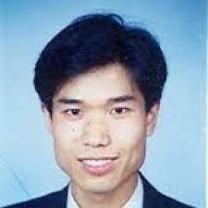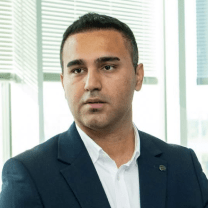Access to Springer Books
ABOUT ICIE 2026
The emergence of innovative technologies and new business models based on innovation, cooperation networks, and the enhancement of endogenous resources, are assumed to be a strong contribution to the development of competitive economies all around the world.
CALL FOR PAPERS
ICIE’2026 will be the 5th edition of this conference in the successful series of conferences on Innovation in Engineering.
This edition of the conference is organized at National University of Science and Technology Politehnica Bucharest in Romania.
CALL FOR SPECIAL SESSIONS
ICIE’2026 conference is glad to receive proposals for Special Sessions.
Submissions should be made, by e-mail, through the General Conference Chair until October 31st, 2025.
Don't miss this unique opportunity!
Special Sessions Submission deadline is October 31th, 2025. Papers Submission deadline is January 09th, 2026
INTERNATIONAL CONFERENCE
INNOVATION IN ENGINEERING
Publication Opportunities
This event offers a great opportunity to bring together professors, researchers, and scholars around the globe, having a great platform to deliver the latest innovative research result and the most recent development and trends in engineering and applied sciences field.
Our World Class Speakers

Prof. Eva Henrietta Dulf
The complexity of modern healthcare, along with the rapid pace of medical advancements, increasingly surpasses the cognitive and time capacities of clinicians. To keep pace, the future of personalized medicine will rely on harmonized, integrative analysis of large-scale clinical and biological data.
Software and intelligent systems that support clinical decision-making and process automation offer promising solutions to these challenges. This keynote will present the work of the Advanced Process Control Methods research group, highlighting key achievements and ongoing projects at the intersection of healthcare and technology.
Three core areas will be explored: control systems, signal processing, and image processing in medical applications. These technologies not only enhance clinical safety but also advance the broader goals of personalized and precision medicine.
Eva Henrietta Dulf (Senior Member, IEEE) is the head of the ADAPTED research group (https://control.utcluj.ro) and a professor in the Department of Automation at the Technical University of Cluj-Napoca, Romania. She earned her PhD in 2006 and completed her habilitation in 2015. Her research interests include modern control strategies, fractional-order controller design, and the modeling, simulation and control of biochemical and medical processes. She has authored over 150 scientific publications, holds an h-index of 26 with more than 2,500 citations, and has a cumulative impact factor exceeding 200. She is listed in the Stanford World’s Top 2% Scientists database. She has received 46 awards at international invention exhibitions. She has led or contributed to 38 research projects and has organized special sessions at major international conferences, as well as guest-edited special issues in leading journals.

Prof. Suthep Butdee
Agentic AI (AAI) defines as the system that as autonomously based on goals, real-time data and feedback loops. It works on self-control, self- configuration, and self-optimization in production cell, process, and system as well as prediction forecasting things will be occurred incident in the near future. Decision making real-time can make highly benefit to managerial management with adaptation for changing and learning from experiences and huge cases of successful for future usages and failures for elimination with prevention. Basic knowledge concerns with pattern recognition for cause and effect identification in complex manufacturing system, whereas the AAI could perform deep-drive innovative procedure and analysis, process capability and optimization together with failure prediction. AAI in production engineering (AAIPE) operates beyond the LLM processing language and documentation combined with geometric modeling and image processing in deep learning process for defect analysis involving with shop floor operation. Industrial production investment impacts highly on the countries’ economic including Thailand located in South-East Asia. There are 47 industrial estates in 15 major provinces. This study proposes on the areas of Eastern Seaboard or (Eastern Economic Corridor) which is invested 200,000 million baht (5,312 million EUR). In major center of industries are new vehicle, smart electronics, logistics and aviation, petrochemical, and robotics. The survey will show the recent AAIPE tools used both from global and localization. The conclusion will represent the trend and effective AAIPE in the future uses in such industrialization and areas.
Assoc. Prof. Dr. Suthep Butdee received PhD. in Manufacturing Engineering at Queensland University of Technology in Brisbane, Australia in 1998. His experiences focuses on the domains of production Engineering and Robotic Engineering for 35 years both academic and industrialization. He did Ph.D thesis on the AI Expert system for machined parts combined the rule-based and case-based reasoning. His previous works were collaborative with several oversea Universities for research and postgraduate fellowship with France, Japan, Germany, Australia, India, and so on. He had experiences in high position in managerial Academic University such as Vice president for research and development for 4 years, Director of Franco-Thai Institute for Automation for 10 years, University council member including vice chair for 20 years, Chairperson for a University academic council for 20 years. He taught undergraduate and postgraduate with principle supervisors in Production and Robotic Engineering around 50 projects. He had received grant for both National and International levels in academic research and industrial consultant for 15 years. He established and founded the key University research center named Integrated Manufacturing System (IMS) center to transfer knowledge and academic to more than 500 SMEs industries in Thailand under the major project named “Manufacturing Development to Improve Competitiveness Program (MDICP)” authorized by Ministry of Industry which was linked by five major organizations to strengthen various industrial sectors including productivity improvement, ISO standardization, Technology roadmaping and transferring, Financial and Accounting management, and Marketing management. He was the key person who took part of the project manager of the MDICP for 20 years. He published papers in the Scopus indexed 65 papers as well as few book chapters. He has a board member of GCMM congress established 35 years. He established the Asian Journal of production and Manufacturing Engineering which is recently ASEP journal. He has joined as the editorial members for Springer books in Mechanical Engineering, Production engineering, Mechatronic Engineering. He was few times invited for keynote speaker in Engineering, Manufacturing and Management international conferences. He has contributed as the well-known international Journal.

Prof. Jiehan Zhou
The convergence of industrial large models and digital twins is reshaping modern manufacturing, energy systems, and autonomous operations. In this talk, I will share the latest advances in these transformative technologies, the progress on Industrial Large Models and Digital Twins by CogTwins Lab at SDUST, and the future cooperation opportunities.
Jiehan Zhou is a Ph.D. supervisor and a professor at the School of Computer Science and Engineering, Shandong University of Science and Technology (SDUST), the Director of the International Education and Research Collaboration Office in the School, the Chair of IEEE-Qingdao CH10879, an affiliate research fellow, University of Toronto since 2010, the Docent (Adjunct Professor) at the Department of Information Technology and Electrical and Engineering, University of Oulu, Finland. He received his Ph.D. in Mechanical Automation from Huazhong University of Science and Technology in 2000 under the supervision of Prof. CAS academician Shuzi Yang (Former President of HUST) and his Ph.D. in Computer Engineering from the University of Oulu in 2011. Professor Zhou has worked at top universities and research institutions worldwide, including Tsinghua University, VTT Technical Research Centre of Finland, INRIA in France, Luxembourg Institute of Science and Technology (LIST), University of Oulu, and the University of Toronto. With over 20 years of international research and industrial experience, he has held positions such as Senior Scientist, Team Leader, Laboratory Director, General Manager, and Principal Engineer at Huawei Canada. He has also served as visiting professors at several universities in China.
Professor Zhou is dedicated to research in the fields of intelligent manufacturing, system modeling and simulation, industrial internet, industrial big data, industrial large models, and digital twins. He has led or participated in numerous research projects funded by China, EU, and Canada, including the ERCIM Fellowship Program, the EU FP6-Amigo Project, and the EU ITEA4-CAM4Home Project. To date, he has published over 200 research papers in these areas.

Prof. Ahmet Köse
The urgency to combat global warming has never been greater, as global temperatures approach the 1.5°C threshold established by the Paris Agreement. With buildings responsible for nearly 40% of global energy consumption, the real estate sector stands at the forefront of both the challenge and the solution.
Innovative, data-driven technologies are transforming how we manage energy in buildings. Through Demand Side Management (DSM) and Demand Response (DR), operations can be optimized at scale — reducing emissions and energy use while maintaining optimal indoor comfort. Buildings are evolving from passive energy consumers into active, intelligent participants in the energy ecosystem, capable of supporting grid stability by dynamically balancing electricity demand.
This keynote lecture will explore practical outcomes, challenges, and lessons learned from diverse regions and building types — from the cold climates of Northern Europe to the warmer zones of Southern Europe and Asia. We will discuss the impact of fragmented automation systems, varying operational cultures, human factors, and learning curves — and how innovation, collaboration, and teamwork can overcome these barriers to create smarter cities, more sustainable built environment in practice.
Dr. Ahmet Köse is the CEO and co-founder of R8tech, founded in 2017, a company dedicated to advancing energy efficiency in commercial and public buildings. Its flagship innovation, the AI-powered R8 Digital Operator, delivers optimal indoor climate at minimum energy cost and is already deployed across hundreds of buildings in 24 countries as of today throughout Europe and Asia.
Dr. Köse’s expertise and passion lie in energy efficiency, particularly in HVAC systems, thermal comfort, and the use of computational and artificial intelligence techniques to drive sustainable practices. He is motivated by the vision of creating innovative solutions that both improve energy performance and contribute to a more sustainable, greener future.
Major Conference sections
List of Proposals for Special Sessions
Don't miss your opportunity. Join the conference in Bucharest, Romania!
Our Sponsors and Partners
ORGANIZERS










LOCAL ORGANIZERS


RESEARCH ENTITIES



















INTERFACE UNITS



